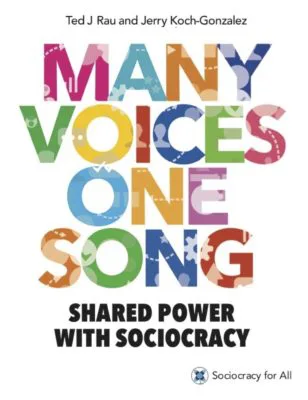Heresy, I know, but I think Holacracy has a good point in using “objections” and not “consent.” Brian says in his Introduction to Holacracy video: “Consent has no place in Holacracy.” We want to hear objections to the proposal.
Restrictions on Consent
One of my criticisms of groups using full-group consensus is that first they commit to one for all, and all for one, then they begin putting restrictions on it. All for one and one for all except when only one person doesn’t consent. Or except when only 10% don’t consent. And that the objection has to be based on group values, which are often non-existent or unclear in respect the policy.
People who consent are never asked for the reasoning behind their consent. What restrictions are placed on consent? What does it mean? Do people explain their reasoning?
The number of restrictions placed on withholding consent proliferate almost as soon as consensus is adopted. Even sociocracy adds restricts consent to “paramount and reasoned.” “Reasoned” is logical but “paramount” is in the eye of the beholder. Who ever refused to consent who didn’t think their objection was paramount?
Consent Means No Objections
Holacracy has avoided the ambiguity and contradictions of the words consent and consensus by going straight to the definition that Gerard Endenburg realized would work in a performance-based organization in the first place — “no objections.”
I suggest that it is a historical artifact that the word “consent” exists at all in Endenburg’s implementation. Just as I think it was a historical artifact in Comte’s to think that a panel of sociologists should be, not just advise the government. He was steeped in autocratic his experience of a single ruler or ruling body. In 1850s France, democracy was admired but not all so accepted as practical. It’s cracks were showing even then.
In the 1940s, Boeke clearly meant consensus in the traditional Quaker sense. Everyone had to consent that a proposed action was in the best interests of the whole and all individual interests had to be considered. Even though Endenburg was educated in Boeke’s tradition, he actually stepped outside it in his method by using the logic of the physical sciences, not religion or politics.
The Basis of Objections
Endenburg based his definition of consent on the absence of objections and objections based on a specific criterion — the ability to work (or function) toward the aim if the proposed action took place. Consent is written in Sociocracy (1988) as “consent (no objections).” Since “consent” was the historically accepted word, he naturally used the word “consent.”
And I’m also sure he meant consent in the spirit of being inclusive. In the 1960s and 70s when he was developing his ideas there was a general reaction in the Western World to the exclusiveness and elitism of society. “Objection” was a harder sell with revelations of WWII still emerging. Objections had made no difference. Consent would have been more acceptable.
Categories: History and Philosophy

